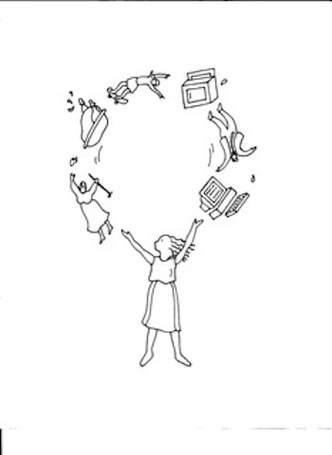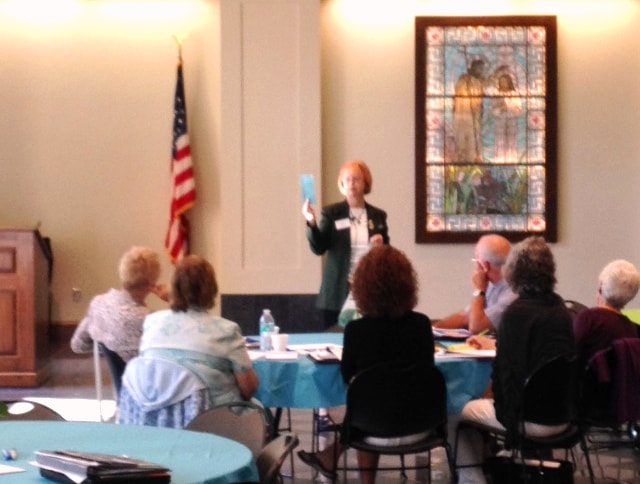|
This is the first of a three part series about the often-heard advice to caregivers to “take care of yourself”.
What does that mean? Since elder caregiving is relatively new, many caregivers aren’t sure. Let’s begin with the word self care; it means considering yourself as part of the caregiving plan. Your health and mental well-being are a vital part of providing care. Think of your contribution in other ways: wouldn’t you take care of equipment used to care for the elder? Wouldn’t you make sure to have enough supplies on hand? Wouldn’t it be hard to provide care without equipment and supplies? Think how much harder would it be if you weren’t able to provide care? You’re the most important part. Caregivers may believe that they should put their needs aside: no! That’s like pouring yourself out without putting anything back. Such a belief leads to caregiver burnout. Some caregivers burnout emotionally, others develop health problems, and still others find their families are disrupted. All are symptoms of burnout. Many symptoms go unrecognized. Now that you are aware, you can be alert to the influence of caregiving on your life. Some caregivers believe that the entire task is theirs alone; not necessarily. Part of self care is letting go of that assumption. We ask for help in other parts of our lives; accountants, plumbers, physical therapists, or lawn crews. No one believes these helpers take away our responsibility; they contribute to our successful process. What do you do in a typical day? How many of those tasks require direct interaction with the elder? Who else could do them? For example; laundry must be done. Why does it have to be you? Does it matter to the elder who does it? Letting others into the care process is part of letting go. Letting others in is part of self care. Self care can mean admitting to yourself that you feel certain things in response to caregiving. Some of those feelings are not too “nice”. Frustration, anger, despair and sadness are all parts of the caregiving journey. If a friend came to you admitting to these feelings would you send them away? Perhaps you would listen to them and sit with them. Sadly, I meet caregivers who whisper their negative feelings if they say anything at all! Part of self care is becoming your own “best friend”. You and that self need to talk to each other. Admitting to those not-nice feelings doesn’t make bad things happen. In fact, it allows you to let out some of the pressure behind those emotions. Self care begins with recognition of one’s value, affirmation and support for the caregiver. To learn more, take our course: Preparing to Parent Your Parent or call (217) 787-5866
0 Comments
Caregivers experience a jolt when confronted by their bosses about changes in their job performance. For some caregivers, these issues are the first sign that something has to change: now! Perhaps they didn’t realize that they were regularly tardy or missed important meetings. Did they know that they also missed important details in doing the job? Your boss noticed.
Most bosses don’t know what to do to help the caregiver with those issues. They just want employees back on track at work. Senior Sidekicks knows how to help. Take our course Preparing to Parent Your Parent to get back on the job track. Why take this course; because you must handle caregiving differently. In just 5 classes, you will learn ways to cope with and better manage caregiving. Senior Sidekicks brings this course to you; at your church or club. Senior Sidekicks teaches Preparing to Parent Your Parent at your convenience; evenings, weekends, lunch hours or days. One low price gives you 5 classes, a manual, and chance to bring your significant other for half price! This course shows your boss that you’re tackling this problem and wrestling it to the ground! Call Senior Sidekicks today at 217-787-5866. Senior depression presents several problems. It appears as “mild” even if it doesn’t affect seniors mildly. Depression symptoms may surface as physical complaints. Seniors grew up in an era when receiving mental help = CRAZY. Each of those problems presents a barrier to treatment. How does a caregiving adult child get a senior to accept the help they need? They really need it. Even though seniors account for 13% of our population, they comprise 18% of all completed suicides! Our society must take senior depression seriously. Medication may not be enough. Religion/spirituality (R/S) may be a treatment pathway that seniors can accept.
Religious and Spiritual Factors in Depression: Review and Integration of Research is a review of literature: a look at 444 research articles on the subject of R/S. All studies were reviewed for their methods. 178 studies were found to be rigorously designed and their data analyzed. Most studies found that seniors who a religious or spiritual practice did better at managing depression or facilitating its resolution. The review found that R/S beliefs may be used to cope/adapt to stressful life circumstances. Seniors certainly face those; life-changing illness, loss of career, loss of home, and loss of spouse/friends. Their lives need ways to adapt. A second part of this study, found a lower likelihood of mood or psychiatric disorder for those who regularly attended religious services. There was one caveat; if the R/S tradition was very orthodox, the senior may feel more judged than supported by their R/S tradition. You know your senior. You know what type of R/S practice they hold. If there is a supportive faith community; try it. This same review of literature noted that “pastoral counselors spend 140 million hours (doing) therapy each year”. That’s more hours than provided by the American Psychological Association! Since it is part of the counseling media, ask for this help for your senior. Does it help? The greatest medicine is no good if your senior won’t take it. The same applies to counseling. If it’s socially acceptable to meet with the pastor; use that method. Health and Spirituality, examined the relationship between health and spirituality. Researchers found that the modern, western era’s response to illness/depression was a departure from other cultures and most of history. In other times, religion was considered an integral part of healthcare. Major illnesses focus the patient’s attention on ultimate meaning, purpose and transcendence. The Nurses’ Study found that women who attended weekly religious services had a lower mortality rate that those who never did. Regular religious attendance was associated with a lower rate of depression. Wow! Does our society need to return to an integrated/ whole person strategy to effectively treat seniors? I believe we should. Have we become too quick to provide pills to our seniors? The Center for Medicare and Medicaid (CMS) has a “rule of 4”. If the senior is taking more than 4 kinds of pills, their risk of medication conflicts and issues increases. While medicine might be helpful, other strategies could make a difference without raising further medication conflicts. How many pills is your senior taking? Is it a constant battle to get them to take medicine? I suggest you discuss the idea of trying regular religious attendance and pastoral counseling instead. As you discuss this method with the doctor, please keep this study result in mind. One study gave cancer patients and their doctors a list of 7 factors to rank when making medical decisions. The patients ranked faith in God 2nd. The physicians placed it last. Thus, it is the adult child/caregiver who must advocate for alternative approaches. Always discuss changes with the doctor. Try adding God; He just might help your senior. |
Author "A Senior Moment" is written by Ms. Sara Lieber, owner of Senior Sidekicks. Ms. Lieber has over 30 years of experience in senior care. Archives
March 2024
Categories
All
|




 RSS Feed
RSS Feed